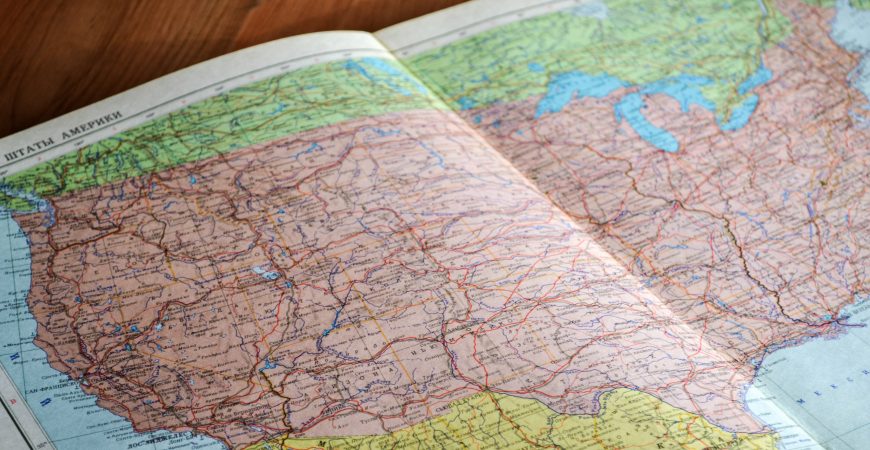
Interstate moving 101
Moving, in general, is a stressful period in each person’s life. Interstate moving is a step further. Being prepared is a way to avoid many problems. It doesn’t have to too difficult to pack and move to another state if you have the right approach. You need to go through this process systematically and make sure that you start on time. These tips and tricks will for sure make the interstate moving as easy as possible, and help you land to your new home in no time.
Take your time and start early
The first thing you need to do is to find good, reliable long distance movers NJ. Carefully do the research and compare the companies that are capable of interstate moving. Choose the one that is the most suitable for your move. Furthermore, think about the time you will need to pack, whether you will need some extra help from your friends or even professionals, etc. Consider everything you have so you can contact the moving company and get an accurate quote. This way you’ll know if it will be necessary to cut some costs, for example.
Interstate moving – packing
Make an inventory list
First of all, you need to prepare for packing beforehand. This means it would be great if you made a list of your furniture and other things in each room. This way, you will have a clear idea of how many items you have and it will be easier to get all the necessary packing equipment. You will know how many boxes you’ll need but this list can also be very useful when it comes to insurance during the move.

Making an inventory list can be useful on many levels
Prepare your furniture
Some of the things are able to be disassembled, so moving them will be much easier. That’s why you need to check all your furniture and see if it is possible to pack them into pieces. Remember to label each piece with numbers, or words (left, right, top, bottom) so it is easier and faster for you to put it together later on. Some sensitive or valuable items need to be carefully taken care of, which means some extra blankets, boxes, and a tape is something to consider. Even though these steps seem too much, it’s better to be safe than sorry. All these items have a long way ahead, so be careful not to lose or damage some of them along the way.
Prepare your electronics
Electronic items like TV, computers, stereos are probably the most sensitive items to move long distance. That’s why to pack properly is a must. It would be great if you saved their original boxes, which you bought them in. They include appropriate protection in them so it is easy to pack the items back inside and don’t worry if they will damage. If you threw these boxes away, be careful to protect the electronic before you put them in a box. You can use some bubble wrap, blankets and old clothes to do this. Also, organize and label the cables, so you don’t waste time, later on, to find out where each cable goes.

Be careful when packing your electronics
Save some money for interstate moving
Moving locally and moving interstate has many things in common, but the biggest difference, of course, is the cost. Moving across country can be incredibly expensive, and NJ movers charge you depending on the distance and the weight of the items being moved. Luckily, there is a way to reduce the cost and make some room for the new furniture. Here are some things you can do:
- Get rid of the things you don’t really need – if you spent a couple of years in your old house, it is natural that you have accumulated some things that are no longer necessary. We all have some items that we save for special occasion, but never really use them. Now is the perfect opportunity to donate or throw them away.
- Sell some appliances or electronics – these items are usually the bigger and bulkier ones. To reduce some cost when moving, you could sell some of these items online, and then buy new ones when you move into your new home. Look around and check if any of appliances needed replacement, so now is the perfect time to do it. If there are any appliances that are broken and not usable, you can always recycle or scrap them for metal, and earn some extra cash.
- Be flexible – avoid the most popular moving periods. Movers usually charge more during holidays, weekends, spring and summer. Start and end of a month are also popular among students, so you may want to avoid these as well.
- Don’t buy packing equipment – do this in advance. Collect boxes, bubble wrap, and other supplies beforehand. Ask friends and family to give you some. Big shops and supermarket will be happy to get rid of them as well. Suitcases and laundry baskets can serve as containers perfectly.
Be ready to start your new life on the new address

Changing your address is important
Moving states and changing your address is not just about moving your furniture. Basically, you need to move your whole life there. This includes some ‘adult’ work you need to do. First of all, after changing your address physically, you need to do it on paper. This means you need to redirect your mail to your new address, because of the bills, membership subscriptions, etc. Inform your bank, health care fund, tax office, etc, of your new address as well. Change the internet provider, and inform of your car registration and license transfer if that is necessary when changing states.
Following this simple guide will help you stay organized during your interstate move. Even though at first glance there are so many things to think about, you will be grateful in the end. The process of changing your address doesn’t have to be a stressful nightmare, but an exciting adventure. Plan and think ahead and you’ll move in no time without any problems. Bon, voyage!

